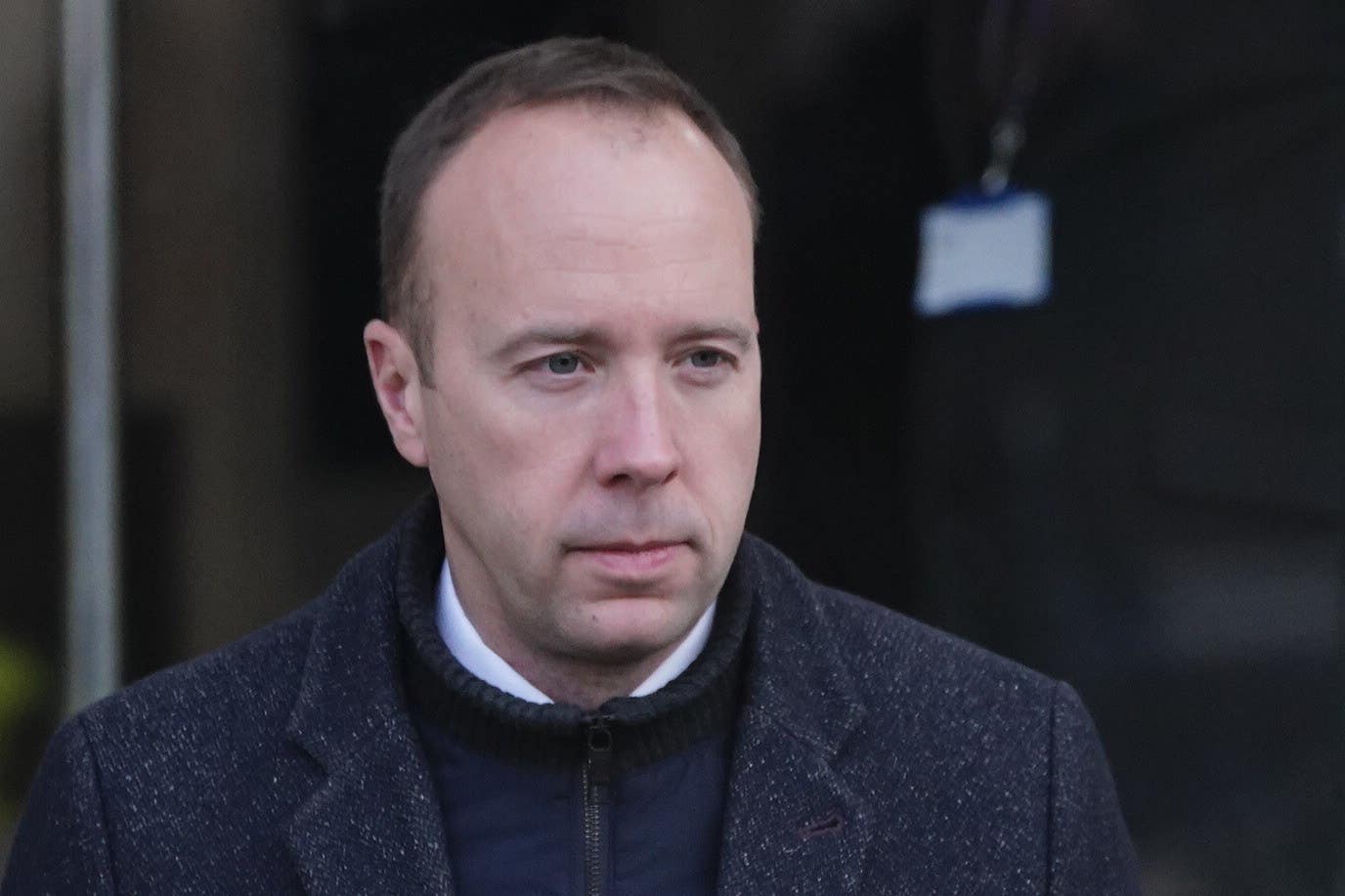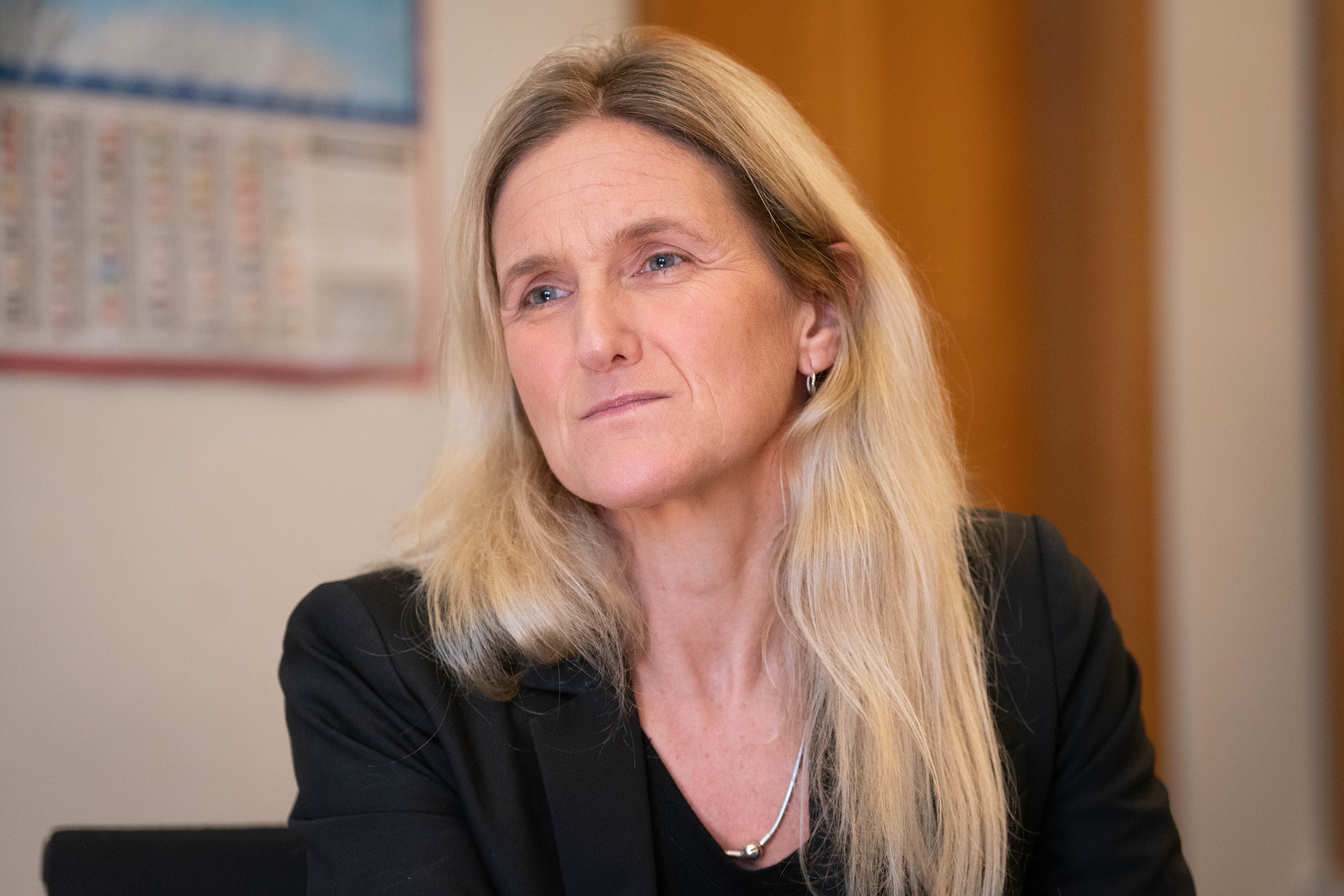Matt Hancock urges MPs to back assisted dying after constituent’s cancer tragedy changed his mind
Exclusive: The former health secretary told The Independent he can remember the moment he changed his mind on assisted dying
Matt Hancock has urged MPs to back Kim Leadbeater’s assisted dying bill, recounting his experience with a constituent suffering from terminal cancer who begged him to change the law.
The former health secretary told The Independent it is time for the law to change, saying it is wrong that some people are “still forced to have very painful deaths”.
“I can remember the moment that I changed my mind and became in favour of assisted dying when I was health secretary”, Mr Hancock said, telling the story of David Minns, one of his Suffolk constituents, who died last year.
Mr Minns nursed his daughter, who was diagnosed with cancer, through a very painful death. Months later, he himself fell ill with a very similar type of cancer.
“He knew what was coming”, Mr Hancock said. “Talking to him and his family was incredibly moving. He knew his death was inevitable and risked being painful, and he begged me to get the law changed and it didn’t change him in time for him. He died last year.”
Mayor of Greater Manchester Andy Burnham – who served as health secretary from 2009 to 2010 - told The Independent he too would support the legislation, saying the bill has the “potential to minimise considerable distress and suffering”.

“It could actually take away some of the scarring that can come from a traumatic end of life situation... Theres a difference between discomfort, suffering and agony. An agonising situation for a person and the people witnessing that is what this is about changing”, he said.
However, he expressed concern about the state of palliative care in the UK, warning that “hospices up and down England are funded in a haphazard, ad hoc way that is in some ways disrespectful to the vital role they play”.
The Labour mayor called for an independent review into the state of palliative care in the UK, adding: “For us not to have put end of life care on a firm foundation before we introduce this bill – that’s where my concern is”.
“If I was in parliament, I would seek to move an amendment that the enactment of this bill must come after an independent assessment of hospice care, to ensure it is in a stable and strong position. It shouldn’t be the case that we leave people with inadequate care and then we introduce this change”.
Pointing to public support for the legislation, he added: “Parliament can’t be behind the people, I don’t think. In an aging society, more and more families are having experiences where something wasn’t right [during end of life care], and I think that’s why public opinion is where it is.”
Opposition campaigners have expressed concerns around possible coercion and vulnerable people feeling pressured to take their own lives, instead urging a focus on improving palliative care.
Mr Hancock said he is a strong supporter of palliative care, but believes there is some pain that cannot be mitigated in its entirety.
While he himself previously had some unease about the possibility of coercion, he believes the safeguards in Ms Leadbeater’s bill are strong enough to protect against it.
“They are very strong. We’ve seen in other countries with strong safeguards like this, the change in the law for many people there is welcome.
“I previously was worried about undue pressure - but it’s well taken into account in this bill.”
The legislation would mean the process of assisted dying must involve two independent doctors being satisfied that the person is eligible. A person must be terminally ill and expected to die within six months.
But it comes as the chair of Disability Labour has led a cross party effort to persuade MPs not to back the assisted dying bill tomorrow.
Kathy Bole said: “We are worried that the current proposals may not include sufficient safeguards to protect vulnerable individuals from coercion or undue pressure.
“Furthermore, there is apprehension that the criteria for eligibility could expand over time, as has been observed in other countries, potentially leading to unintended and harmful consequences for people with disabilities.”
Former Tory MP Tom Hunt, who chaired the all party group on special educational needs, added concerns about how people with autism will be affected.
He said: “If the right support isn’t available neurodivergent people such as myself can often be taken to very dark places and self-doubt and depression can often kick in. It seems very wrong to me that we’re talking about introducing assisted suicide laws with weak safeguards before we’re still so far off being a society that is truly accessible and friendly for those with neurodiversity.”
On the eve of the historic vote, the result is on a knife-edge, with backers of the bill believing they have enough support and opponents confident they may be able to block it.
Justice secretary Shabana Mahmood, health secretary Wes Streeting, education secretary Bridget Phillipson and business secretary Jonathan Reynolds have all said they will reject the bill.
But culture secretary Lisa Nandy, work and pensions secretary Liz Kendall, Northern Ireland secretary Hilary Benn, transport secretary Louise Haigh and energy secretary Ed Miliband have all expressed support for the legislation.

Overnight on Wednesday, David Cameron became the first former UK prime minister to give his backing to moves to legalise assisted dying for terminally-ill adults.
While he had previously opposed moves to change the law, in an article for the Times, he said he had been won over to supporting in the Terminally Ill Adults (End of Life) Bill, set to be debated by MPs on Friday.
Former prime ministers Liz Truss, Boris Johnson, Baroness May and Gordon Brown have all said they are opposed to the Bill.
Join our commenting forum
Join thought-provoking conversations, follow other Independent readers and see their replies
0Comments